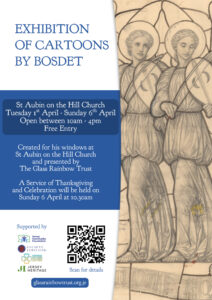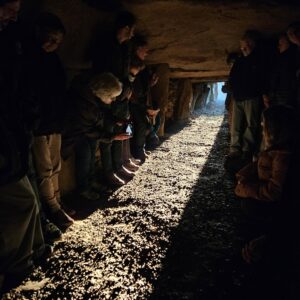
By Alasdair Crosby, editor, RURAL magazine. The essay is reprinted courtesy of the Jersey Evening Post
‘Last night I dreamt I went to Dotcombe once again. It seemed to me I stood in the lane leading to it, and for a while I could not enter, for the way was barred to me. There was a padlock and a chain of many links of past time, barring entry…’
But I remember Dotcombe, although it is now many years since I last lived there. As a child, I played with other youngsters in the surrounding fields and farms, rode ponies, or went for long cycle rides down the country lanes.
Since then, there has been a flood, and much of Dotcombe has gone, sunk beneath the waves of time as irretrievably as Lyonnesse or Numenor. Its shell might still exist, but now it is called Dot com.
In Dotcombe, if you wanted to write something, you used pen and ink or a typewriter. To communicate in writing with the outside world, you wrote a letter, and then walked down to the letter box by the village shop. If your communication was blindingly urgent, you could always send a telegram.
Or, you waited for the bus or took the car into the local market town, where, to make the journey worthwhile, you spent several hours. You visited the library, you visited the market, you met friends, had lunch in a pub or café, did the part of the week’s shopping that was not available from the village shop, and, perhaps if time permitted, went to the pictures.
The modern Dot com has done away with all that time-wasting sociability and localism. Now, you can do cyber-shopping at two o’clock in the morning, research anything you want on the Internet, correspond instantly via e-mail or some other form of novelty communication, and never, ever, if you so wish, speak to another human being at all.
My own Dotcombe was a pleasantly undistinguished West Country village. But everywhere there was a Dotcombe, even if the name was actually Scannasthorpe, or Dotcombe Street London, or Lough Ui’nLighne, or L’Ouebbe in Jersey or, indeed, Webenseit or Sainte-Réalité-la-Virtuelle or anywhere abroad… they were all more similar to each other than to those places of a similar name that may have survived the flood of information technology.
Dotcombe was no idyll, even if nostalgia might sometimes suggest that it was. As everywhere, there would have been some poverty, and some misery, and maybe some horror and all the varieties of human experience – Dotcombe was never Brigadoon. But it was familiar in a way that Dot com has never been. I only wish I had been born earlier, so that I need never have left Dotcombe, or later, so that Dot com might not now seem quite so alien.
It does not seem that long ago that the word ‘Internet’ was on the extreme periphery of my consciousness – I was aware of the name, but if I thought about it at all, I would probably have imagined it was something distasteful connected with pornography. How quickly we have moved on from there over recent times in our perverse quest to substitute appearance for reality.
I must admit I have never enjoyed a positive relationship with anything to do with information technology. Every day in the office a battle takes place between weak human will and the superior will of infotech, in which the computer screen and I glare at each other in mutual incomprehension and hostility. Occasionally it sends me a stroppy message, such as ‘this is an illegal function’, or in a fit of moronic petulance, it removes my entire text to the ether, from where it refuses to return it, despite every keyboard variant of ‘pretty please’.
It would, of course, be obtuse to ignore the many good things that Dot com has brought in its wake, or the enhancement of life it can offer. We have so often been told that e-commerce is the way ahead that I suppose it must be true, although given the opportunity I would still prefer to go into town to visit the bank, the market, the library and the pub.
We live in an information age, and I remember reading somewhere that the amount of electronic information received in one day, by, for example, a financial trends analyst, is equivalent to a whole lifetime of information received by an educated person in the 16th Century – the age of Shakespeare and Marlowe, Tallis and Byrd, Drake and Raleigh, the age of discovery and of Gloriana.
Anyone can see at a glance how much better we are off in modern times with the benefit of all that extra daily information.
Recently, I re-read that excellent fairy-tale for grown-ups, ‘That Hideous Strength’ by C S Lewis. The author, who wrote the Narnia chronicles for children, has often been called ‘a modern prophet’. Like Orwell, he could foresee the dire future to which contemporary trends could lead unless we took positive steps to challenge them.
For those who haven’t read it, the book is about what would nowadays be called a Quango, the National Institute for Co-Ordinated Experiments (NICE), which, beneath the veneer of its ostensible function as a forward-looking central planning agency, is pure evil. At the climax of the book, NICE holds a formal dinner, with guest speakers, unaware that Merlin has been re-awoken from his age-old sleep, and is present in the dining-room.
As the speeches progress, the speakers think they are making sense, but to everybody else’s ears they are talking complete gibberish.
‘The madrigore of verjuice must be talthibianised,’ intones the principal guest speaker, ‘The surrogates esemplanted in a continual of porous variations.’
Hysterical giggles break out up and down the room. The chairman rises to restore order: ‘Tidies and fugleman, I sheel foor that we all – er – most steeply rebut the defensible, though I trust, lavatory, aspasia which gleams to have selected our redeemed inspector this deceiving. It would be shark, very shark, from anybody’s debenture…’
Hysteria breaks out again, and turns to uproar, as nobody finds that they can make themself understood by one another. Shortly before uproar turns to total mayhem, and as the wild animals from the vivisection laboratories escape into the room, the voice of Merlin can be heard above the din: ‘Qui verbum dei contempserunt, eis auferetur etiam verbum hominis’ – They that have despised the word of God, from them shall the word of man also be taken away.
Think AI; think transhumanism; click Http-dot-forward slash-dot-com. Dot-at-daily-dot-uk-dot-forward slash. Www-dot-at-forward slash-uk….. – ‘Qui verbum dei contempserunt….’?
Those who like Dot com: feel free to stay there and enjoy yourselves. Don’t let me stop your fun. As for me, I would rather return to Dotcombe, please.




